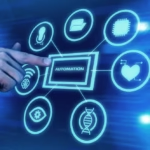In a world where young people are often left out of decision-making processes, UNICEF launched U-Report — a digital tool that allows millions of youth to express their opinions, influence policies, and participate in solving critical social issues.
U-Report was launched in 2011 with a simple idea: ask young people what matters to them and make their voices heard. Since then, the platform has evolved into a global community connecting over 24 million users across 95 countries. It serves as a simple, accessible channel for surveys, consultations, and dialogue between youth and governments, donors, or international organizations.
In the context of sustainable development, building open societies, and civic engagement, U-Report is a bright example of how digital technologies enhance youth participation in important social processes.
How the platform works: available channels and mechanics
U-Report leverages popular communication channels that are accessible to youth almost everywhere:
- Telegram
- Viber
- Facebook Messenger
- SMS (in regions with limited internet access).
Participants can join the platform in just a few clicks, free of charge and anonymously. After registration, they receive regular surveys on relevant topics: child rights, gender equality, healthcare, education, climate change, digital safety, and more.
The format is simple: young people receive questions, choose their answer — and that’s it. Sometimes, there are additional sections for comments or ideas. Importantly, the survey results are collected in real-time and shared with governments, UNICEF partners, or published openly so everyone can see the position of young people.
This is not just feedback — it’s a tool of influence that helps shape policies at local, national, and global levels.
Technological solution and its adaptability
U-Report is more than just a survey platform. It’s a modular, scalable, low-cost technological solution designed to engage large audiences in real-time and provide easy feedback mechanisms anywhere in the world.
The platform was developed in partnership between UNICEF and the international digital agency Nyaruka, which specializes in digital tools for the Global South. The technology is based on the RapidPro framework — an open-source solution that enables complex interactive scenarios for chatbots, SMS systems, and messengers.
Key technical features of U-Report:
- Multichannel integration. The platform supports simultaneous integration with SMS, Facebook Messenger, WhatsApp, Viber, Telegram, and more. This ensures access even in regions with limited internet.
- Powerful backend. Survey scenarios are built using RapidPro’s visual editor, allowing UNICEF analysts or local coordinators to create surveys without developers.
- High adaptability. The system easily scales: surveys can reach one million or one thousand users, depending on needs. New countries can be connected within a few weeks.
- Localization. Supports multiple languages and dialects, including locally adapted question and answer formats to fit cultural contexts.
- Open architecture. API integrations allow U-Report to connect with analytics systems, CRMs, information portals, dashboards, or even offline data processing tools.
- Visualization modules. Survey results can be instantly displayed on dashboards with charts, maps, and heat zones — for quick responses, including in emergency situations.
It’s worth highlighting that the platform’s technical core was designed on the “no developer dependency” principle — meaning local UNICEF offices can independently launch and adapt surveys without ongoing technical support from the central team.
Additionally, UNICEF and Nyaruka continually enhance the platform, adding AI tools, automated response processing, data protection, and GDPR compliance. For example, U-Report can now automatically detect “help requests” in user responses and redirect them to relevant support services in the region.
This example showcases how to build a reliable, easy-to-manage digital ecosystem that operates not just in donor organization offices but also in the hands of teenagers, teachers, municipalities, and community leaders worldwide.
Results and societal impact
U-Report is not just a platform for collecting opinions. It has become a real mechanism for influencing social processes. Here are some examples of its effectiveness:
- In Nigeria, U-Report helped identify issues in the vaccination system, leading to adjustments in health programs.
- In Latin America, surveys uncovered the needs of youth regarding gender equality, prompting new educational programs.
- During COVID-19, when millions of children were at home, U-Report quickly gathered insights on youth concerns — from mental health to access to online learning.
These outcomes demonstrate that when young people have a voice, they can shape policies and social programs. This is not a formality but real change that impacts millions of lives.
Lessons for other organizations: what to adopt
U-Report is a shining example of Tech for Good, adaptable even by small NGOs or municipalities.
Here are some tips for those interested in similar approaches:
- Simple and accessible channels. Telegram, WhatsApp, SMS — tools available even in low-digital regions.
- Anonymity and trust. U-Report ensures privacy, increasing engagement levels.
- Adaptability. Surveys can be flexibly tailored to local needs.
- Use of analytics. Survey results are more than just numbers — they can be visualized, analyzed, and used for reporting or advocacy.
U-Report proves that technology can bridge the gap between citizens and global institutions. This project shows that you don’t need to build complex platforms — intuitive interfaces, familiar communication channels, and effective feedback loops are enough.
Responsiveness, usability, and trust are critical elements every organization should consider. U-Report highlights the power of collaboration between IT teams, civic organizations, and international partners to achieve broad social impact.
Technology is not the goal — it’s the tool. And when that tool is adapted to user needs, its effectiveness multiplies. This approach empowers communities and helps shape policies not “top-down” but together with people. It makes technology not just a tool but a bridge between authorities and society.








